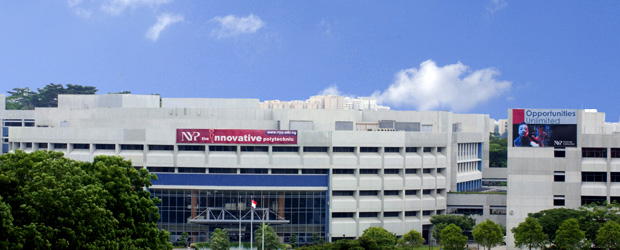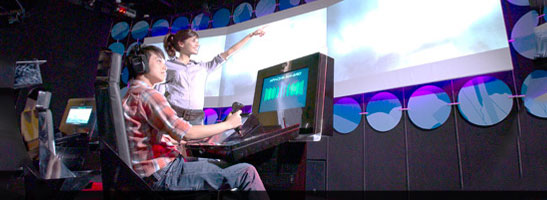
Learning journeys will be lined up for delegates to visit local institutions and organisations that have implemented technologies to enable and enhance learning. Hosted by our local educational community, these visits provide delegates an opportunity to experience for themselves the technologies and best practices implemented at their organization. It also provides opportunities for further collaboration and sharing with your institution or organization.
Come and join us for a fun and learning time.
You will only need to choose ONE option during registration, subject to availability of places.
Buses will leave at 3 pm on 9th June 2011 where our LJ friends will bring you through a 90 minute programme, including sharing sessions and showcase of their elearning projects that harnesses the potentials of latest technologies.
Our current list of learning journeys include:

http://mxl.lst.nie.edu.sg/mxl/Default.aspx?tabid=61
Established in 2007, the MxL Studio was set up by the Learning Sciences and Technologies Academic Group, National Institute of Education (NIE) to promote IDM applications with sound pedagogical and technological support for educators. The session will discuss opportunities of integrating interactive digital media (IDM) such as Second Life and video games with e-tools such as wikis, QR codes, MindMeister and VoiceThread into your workshops and courses.
Maximum capacity : 30

http://www.learnerstogether.net
Here's an opportunity for a hands-on experience and introduction to iPhone applications and courseware developed by iMedia Centre for the various courses at Ngee Ann Polytechnic. You can also look forward to an informative sharing session on social networking for education as well as recent case studies of e-learning applications at NP using Web 2.0 tools, Virtual Stocktake and a ship simulation software to learn naval architecture.
Maximum capacity : 30

Nanyang Polytechnic (NYP) offers 49 full-time diploma courses in Engineering, Information Technology, Design, Interactive & Digital Media, Business Management, Health Sciences and Chemical & Life Sciences, as well as a suite of customised courses for continuing education. The Polytechnic’s unique “Teaching Factory Concept”, complemented with other innovative pedagogies, enables students to learn within a training environment that emulates the workplace. Learning Journey participants will see NYP’s “Teaching Factory” concept in implementation, as well as NYP’s e-Learning initiatives, which include the award-winning Accumulated Experience Sharing or AES® programme.
Maximum capacity : 20

http://www.sdc.com.sg/attraction-listing.html
What makes Singapore tick?
What are some of our nation's challenges and aspirations?
Join us for a guided tour of the Permanent Exhibit Gallery (PEG) that tells the Singapore Story through a myriad of themes and multi-sensory experiences that engages both heart and mind!
Participants will walk away with the knowledge of how and why Singapore is a success story she is today. More details of our PEG can be found at http://www.sdc.com.sg/attraction-listing.html
Maximum capacity : 40
Walking trails and visit to NTU Centres and facilities, including:
- Gamelab –a research and development facility at NTU, gameLAB's activities center around exploration of novel gaming technologies and experimentation of their creative uses in game development. Find out more at http://www3.gamelab.ntu.edu.sg/
- Centralised Command Centre for Lecture Recording (CCCLR)– An opportunity to view NTU’s innovative centralized lecture recording service for all common Lecture Theatres
- TRx (Future Classrooms) – Tour of the technology enabled tutorial rooms at NTU. For more details of this project http://edventuresg.wordpress.com/2011/02/24/tr-trx-and-tr/
Ngee Ann Polytechnic
Nanyang Polytechnic
Singapore Discovery Centre o
